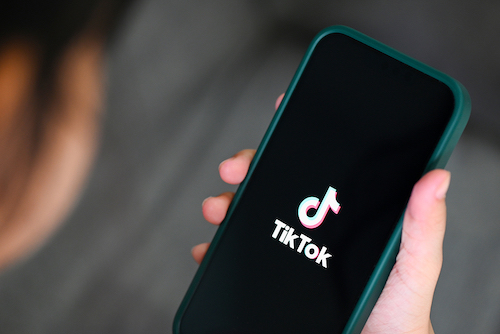September 5, 2024
by Elizabeth Pratt

Scrolling through social media videos could increase boredom and make users feel less engaged with content.
Research published in the Journal of Experimental Psychology: General found that endless scrolling may make users feel less satisfied with the content they view.
[More]
July 31, 2024
by Elizabeth Pratt

Younger workers are feeling undervalued, stressed and lonely in the workplace.
The 2024 Work in America Survey from the American Psychological Association found that 45% of workers 18-25 felt lonely at work whilst 48% feel stressed or tense at work.
[More]
June 25, 2024
by Patricia Tomasi

A new study published in the Journal of Psychological Medicine looked at associations between attention-deficit hyperactivity disorder (ADHD) genetic liability and ICD-10 medical conditions in adults. “ADHD is a highly heritable common neurodevelopmental disorder, but often underdiagnosed in adults and, if left untreated, can cause several negative health concerns.,” study Elis Haan told us.
[More]
March 30, 2024
by Elizabeth Pratt

The United States has fallen out of the world’s top 20 happiest countries.
The World Happiness Report revealed the US fell from number 15 to number 23, putting it out of the top 20 for the first time since the report was published in 2012.
[More]
February 13, 2024
by Patricia Tomasi

A recently published study looked at depression detection using in-the-wild smartphone images. “Our study, MoodCapture, explores the innovative use of smartphone technology to detect signs of depression through ‘in-the-wild’ facial expressions captured by the front-facing camera during routine phone unlocks or app use,” co-first author Subigya Nepal told us. “We aimed to assess whether these spontaneous images, which reflect authentic emotions free from the biases of self-presentation, could serve as reliable indicators for depression."
[More]
June 13, 2023
by Patricia Tomasi

A new study published in the Journal of the American Planning Association looked at breaks in the workplace and why some employees take their breaks and others don’t. “Our research is about breaks in the workplace,” study author Vincent Phan told us. “We were hoping to get a better sense of employees’ reasons for taking breaks at work, as well as their reasons for not taking breaks despite wanting or needing a break.” Past theory and research within the occupational health psychology literature would suggest that employees may want a break when they feel tired or upset, or when they feel their performance on the job isn’t as good as they would like. However, employees do not always take breaks when they want to do so.
[More]
July 29, 2022
by Elizabeth Pratt

If you’re at your happiest when gardening, you’re not alone.
Researchers from the University of Florida have found that working with plants could have a mental health benefit, even among those who have never tried gardening before.
[More]
May 30, 2022
by Elizabeth Pratt

People may take fewer COVID-19 safety precautions and feel less vulnerable to infection when around friends.
Researchers from Universidad Carlos III de Madrid in Spain were inspired to undertake the research after realising they felt safer when with close friends.
[More]
March 8, 2022
by Patricia Tomasi

A new study published in the Health Environments Research and Design Journal looked at hospital greenspaces and the impacts on wayfinding and spatial experience. The study was an explorative experiment using immersive virtual environment techniques. “The study compares people’s performances and spatial experiences during hospital wayfinding in two scenarios: the virtual hospital with window views of nature and greenspaces, and the virtual hospital without window views,” study author Shan Jiang told us.
[More]
August 27, 2021
by Elizabeth Pratt

As the COVID-19 pandemic spread across the world, an interesting phenomenon was playing out in grocery stores. Panic buying. As the COVID-19 pandemic spread across the world, an interesting phenomenon was playing out in grocery stores. Panic buying.
Consumers, in the face of increasing uncertainty, began stockpiling in a buying frenzy that left the shelves bare.
Now a study from the University of New South Wales in Sydney, Australia may have an explanation for the behaviour. Unexpected certainty can cause us to change our behavior even if it isn't helpful.
[More]